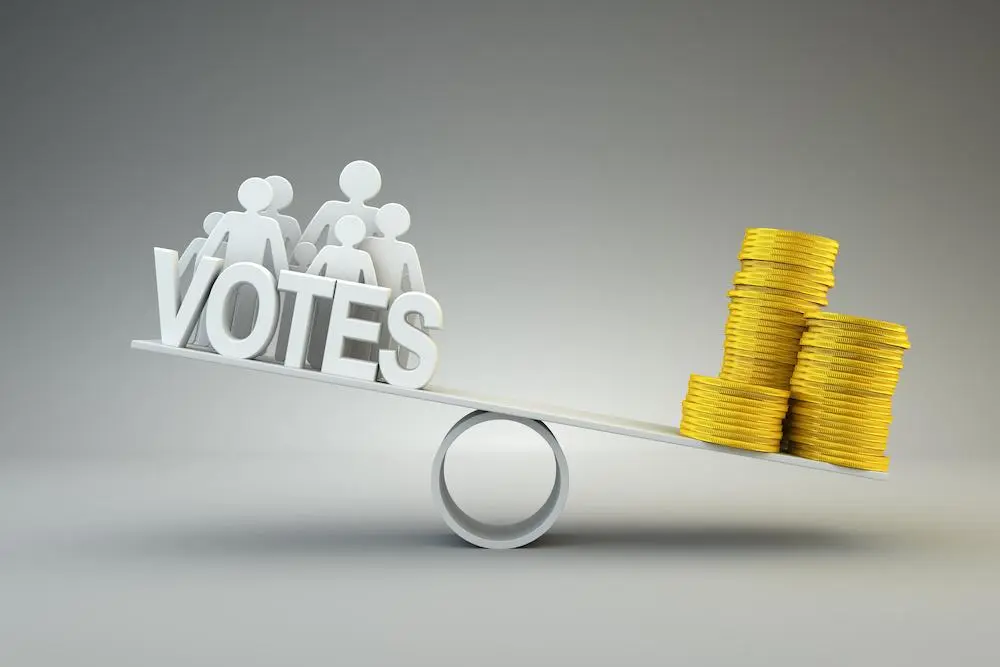News
Inflation Becomes Key Issue in Election Campaigns
Inflation has emerged as a top concern in election campaigns, with candidates presenting competing solutions to reduce rising costs and protect household incomes.

Inflation is officially one of the most important concerns affecting national election campaigns. As consumers continue to feel the effects of rising housing, food, fuel, and other basic costs, political candidates are focusing on economic stability in their campaign messaging. A crucial political element, inflation now affects everything from local elections to national leadership contests.
In recent months, rising energy, rent, and grocery costs have made it hard for families to keep up. Due to their everyday challenges, voters have made economic issues one of their top priorities. Political parties are shifting their strategies and prioritizing short-term solutions above long-term projects in an effort to ease the financial burden on the populace.
Some candidates argue that tighter government spending limits are necessary to lower inflation. They argue that reducing unnecessary government spending can lower economic demand and prevent further price hikes. These politicians usually call for tightening budgets, eliminating unnecessary programs, and reducing subsidies in order to restore economic equilibrium.
Nonetheless, several public leaders want increased government support for middle-class and lower-class households. They plan to increase the minimum wage, offer targeted tax breaks, and provide direct assistance to individuals in order to help them deal with the rising cost of living. Supporters of these programs argue that maintaining household income is essential to maintaining economic stability and boosting demand in general.
Energy policy is another important topic of debate in political discourse. Rising fuel costs have affected household spending, manufacturing, and transportation. Some politicians have promised to boost domestic energy production in order to improve supplies and reduce the price of gasoline. Proponents of greater investment in renewable energy contend that sustainable power sources can provide long-term price stability and reduce dependency on global petroleum markets.
Housing is another crucial issue in the electoral debate. Many young families and first-time buyers are finding it more difficult to afford homes due to rising mortgage rates and a lack of affordable real estate. Politicians are responding by proposing measures to expand the number of affordable housing projects, enact regulations governing rent, and offer incentives to real estate developers so they will build more homes. These measures directly address one of the most unpleasant effects of inflation.
Small businesses are now included in the conversation. Local cafes, merchants, and service-oriented enterprises assert that inflation is impacting their ability to operate. Rising labor, shipping, utility, and raw material expenses have forced some to hike prices, while others are fighting to stay open. To help small businesses survive and grow, candidates are responding by pledging tax benefits, grants, and fewer regulations.
Voters are paying close attention to these policy efforts. Economic stability has always been important for elections, but the present inflation rate has increased public attention more than ever. Many voters assert that they will support the politician with the most workable and effective price control plan.
Political analysts predict that the campaign's central subject will remain inflation. Even if other issues like healthcare, education, and national security are important, the rising cost of living directly affects everyone and is therefore the most important factor determining voter behavior.
As election campaigns go on, candidates will face increasing pressure to fulfill their pledges and present thorough, practical proposals. Millions of people are hopeful about economic relief and financial stability as a result of the election outcomes. How governments respond to inflation now could influence political and economic trends in the future.
PUBLISHED: November 25, 2025

Jeffrey E. Byrd connects the dots that most people don't even see on the same map. As the founder of Financial-Journal, his reporting focuses on the powerful currents of technology and geopolitics that are quietly reshaping global systems, influence, and power structures.
His work follows the hidden pipelines—where data, defense, finance, and emerging technology intersect. He highlights the players who move behind the curtain: governments, intelligence networks, private security alliances, and digital industries shaping tomorrow's geopolitical terrain.
Jeffrey’s mission is to give readers clarity in a world where complexity is used as strategy.
Read More




